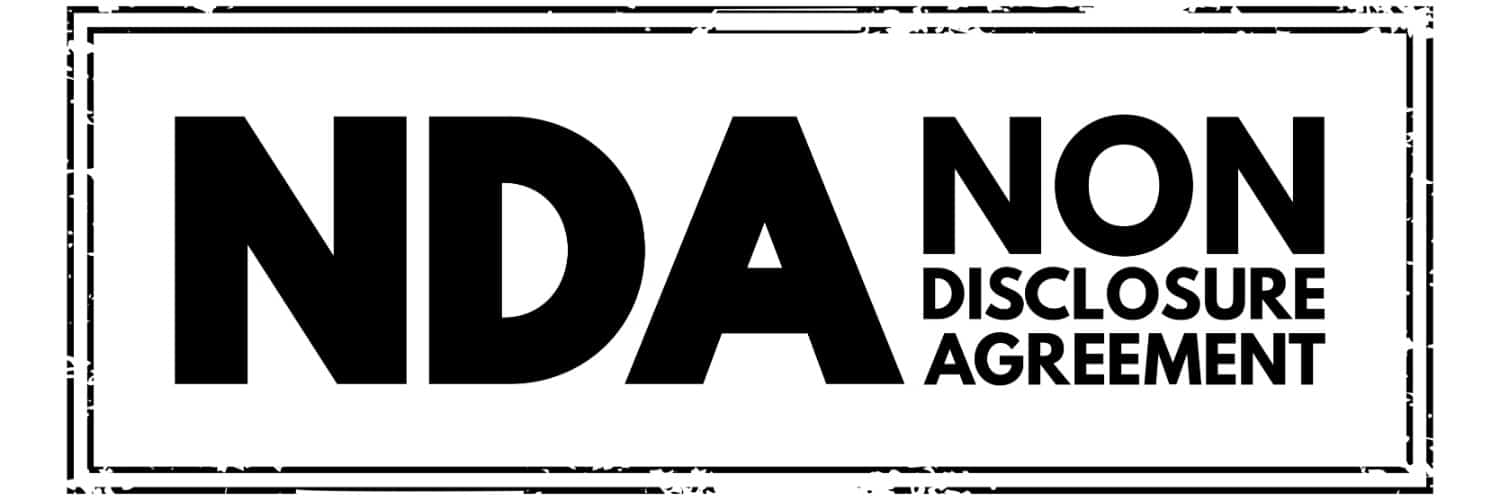Non-Disclosure Agreement in Brazil

A foreign party may want to get a non-disclosure agreement with a Brazilian party if they want to protect their confidential information and trade secrets. This type of agreement is commonly used when sharing sensitive information with another party, such as business plans, product information, financial data, or other proprietary information.
Benefits of the Non-Disclosure Agreement with a Brazilian Party
By requiring the Brazilian party to sign a non-disclosure agreement, the foreign party can have assurance that their confidential information will be kept confidential and not disclosed to unauthorized third parties. This helps to prevent any damage to the foreign party’s business or competitive advantage.
Additionally, a non-disclosure agreement can help to build trust between the parties, as it shows that both parties are committed to protecting confidential information and maintaining the confidentiality of their business relationship.
How We Can Help You
As a law firm, we can help the foreign party by assisting them in drafting and negotiating a comprehensive and enforceable non-disclosure agreement with the Brazilian party.
This agreement would include the terms and conditions regarding the confidential information, the obligations of the Brazilian party with respect to non-disclosure, and any limitations or exceptions to the non-disclosure obligations. Additionally, we can advise the foreign party on local laws in Brazil that may impact the agreement and ensure that the agreement complies with these laws. Furthermore, in the event of a breach of the agreement, we can assist the foreign party in pursuing legal remedies, including seeking injunctive relief or monetary damages.
Need a CPF in Brazil?
We Can Help You
[email protected]
(214) 432-8100
+55-21-2018-1225
#1 Contact us to get a free quote, or
#2 Schedule a Consultation now.
Types of NDA Commonly Used in Brazil
In Brazil, there are several common types of non-disclosure agreements (NDAs) that parties may enter into:
-
Unilateral NDA: This is a one-way agreement in which only one party is bound to keep confidential information secret.
-
Bilateral NDA: This is a two-way agreement in which both parties are bound to keep confidential information secret.
-
Mutual NDA: This is similar to a bilateral NDA, but it includes a mutual obligation to maintain the confidentiality of the information.
-
Third-Party NDA: This is an agreement between a disclosing party and a recipient party, but it also binds a third party to keep confidential information secret.
-
Standalone NDA: This is an independent agreement that governs the confidentiality of specific information.
-
Incorporated NDA: This is an NDA that is included as part of a larger agreement, such as a contract or joint venture agreement.
The specific type of NDA used in a given situation will depend on the nature of the confidential information, the parties involved, and the terms of the agreement.
Frequent Questions
1. What is a non-disclosure agreement (NDA)?
A non-disclosure agreement is a legal contract between two parties where one party agrees to keep confidential information shared by the other party confidential.
2. Why would a foreign party want to get an NDA with a Brazilian party?
A foreign party may want to get an NDA with a Brazilian party to protect sensitive or proprietary information that is shared in the course of business dealings, such as trade secrets, research, product designs, and customer lists.
3. What types of NDAs are commonly used in Brazil?
The two most common types of NDAs in Brazil are unilateral and bilateral NDAs. A unilateral NDA requires only one party to keep the information confidential, while a bilateral NDA requires both parties to keep the information confidential.
4. What should be included in a Brazilian NDA?
A Brazilian NDA should clearly define the confidential information being protected, the obligations of both parties to keep the information confidential, the term of the agreement, and the consequences of a breach of the agreement.
5. Can an NDA be enforceable in Brazil?
Yes, NDAs can be enforceable in Brazil as long as they comply with Brazilian law, including the Brazilian Civil Code and Consumer Protection Code.
6. How can a law firm help with the drafting and negotiation of a Brazilian NDA?
A law firm can help ensure that the NDA is in compliance with Brazilian law and clearly defines the rights and obligations of both parties. A law firm can also assist in the negotiation of the terms of the agreement to ensure that it meets the needs of both parties.
7. What happens if there is a breach of the NDA?
If there is a breach of the NDA, the non-breaching party may be entitled to seek remedies, including injunctive relief, damages, and/or termination of the agreement.
8. Can an NDA be amended or terminated?
Yes, an NDA can be amended or terminated if both parties agree to the changes or if the terms of the agreement allow for termination.
9. What are the potential risks for a foreign party entering into an NDA with a Brazilian party?
The potential risks for a foreign party entering into an NDA with a Brazilian party include the possibility that the Brazilian party may not comply with the terms of the agreement, or that the information may be disclosed through unauthorized means.
10. How can a law firm help resolve disputes related to NDAs in Brazil?
A law firm can help resolve disputes related to NDAs in Brazil by providing legal representation in court, negotiating settlements, and helping to enforce the terms of the agreement.
Need a CPF in Brazil?
We Can Help You
[email protected]
(214) 432-8100
+55-21-2018-1225
#1 Contact us to get a free quote, or
#2 Schedule a Consultation now.

